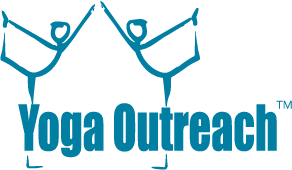According to Statistics Canada, 12.7 million Canadians, are happier and healthier than the rest. They also have better career prospects and an extremely high chance of captaining a pub quiz team over age 90. Why? Because they spend a few hours a month volunteering.
Volunteering makes you stronger.
If you’re like many with a sedentary day job, you’ll struggle more with ailments like painful posture, weaker bones, and higher blood pressure as years go on.
But not if you volunteer. Sorting hampers at a food bank or taking seniors to appointments gets your blood pumping and keeps your joints limber far longer than doing crossword puzzles alone. And if your volunteer gig is teaching yoga, multiply those benefits by a gazillion! (or so).
As for mental health, research shows that voluntary activities disarm anger, anxiety, and depression. How? Since volunteering usually involves social contact, participants are more likely to make friends and have wider support systems than those who sit on the couch eating chips.
There are also little hits of dopamine that come from using your brain in new and challenging ways. And that pride and satisfaction you’ll feel from a job well will help you weather attacks on your self-esteem.
Volunteering can even make you more resistant to alzheimer’s, because “social service improves elasticity in the brain.”
Volunteering gives you power – Rawwwwr!
No, not the kind where you get to boss junior volunteers around.
The kind where your actions are solving problems.
So often it feels like your little voice, your single vote, isn’t doing a damn thing to tackle major issues like racism, sexism, violence, patriarchy, classism, and climate destruction.
Of course, you’re depressed. Of course, you’re anxious and angry. You’re helpless.
But you’re not….as a volunteer, you are helpFUL. The path to feeling better, and making the world better is the same: action. Taking action gives you control over your immediate world.
“We assert our own powerlessness when we give attention to those who seek to harm and oppress us but don’t put our energy into new actions. Being upset without letting the emotion change our behaviors is a pointless use of our incredible, complex system of emotions and changes.” – Adrienne Maree Brown
Teaching mindful breathing to a handful of prison inmates won’t stop the seas from warming. But it might help five people stop torturing themselves with cruel self-talk.
Wouldn’t that be spectacular if five people felt safer and more willing to connect because of YOU?
Volunteering will get you a better job
Maybe you need to get better at delivering presentations, or working with particular groups in order to progress at your chosen career. But it’s terrifying doing a demonstration for a panel of judge-y managers at work. Or you’re scared that you won’t build a rapport with the teens you’re supposed to help, and you’ll be replaced by someone better at it.
Volunteering lets you practise in real-life situations without the real-life consequence of getting fired. (Probably. Obviously there are limits).
Most likely you’ll receive extremely honest feedback from recipients of your volunteering. “Speak up!” “What the heck does “root to rise” mean?” It might sound harsh, but you know exactly what to improve for next week. So much better than corporate feedback: “We feel your delivery requires more people-focus going forward.” What?
You’ll also receive training and ongoing mentorship from the non-profit and/or facility. This is one major reason employers love seeing volunteer work on your resume: the costs of professional development are already on someone else’s dime.
In a study of 546 employees volunteering in London, England, managers “noted that the volunteers gained numerous business- relevant skills, which improved their effectiveness in the workplace. The costs of the programs for the firms were minimal and turned out to be an effective way of developing better skills for their staff.
Volunteering puts “you” with “them”
A paycheque can be a barrier to connecting with traumatized or marginalized people, if that’s your goal. Some participants might think you are here for the money, and not because you really care.
Hey, that’s not fair, you might think.
You know what else isn’t fair? Poverty, hunger, sexual abuse, physical abuse, racism, lack of mental health care, human trafficking etc.
Essentially, don’t try to win an argument about “fairness” with people who haven’t experienced a lot of it over their lifetime. Don’t expect trust to come easily. Don’t expect people to believe they deserve unpaid kindness. It’s a big ask.
That’s why volunteers are so important to social services, nonprofits, and society. We need people to say, I am willing to spend an hour in an often not-very-nice environment, only because I care. That is meaningful.
Then you get to go home with that “warm glow”, like you maybe, kind-of connected with some people. People who are looking forward to your arrival next week.
And you’ve joined the 44% of Canadians that live longer, happier, healthier lives because they volunteer.
